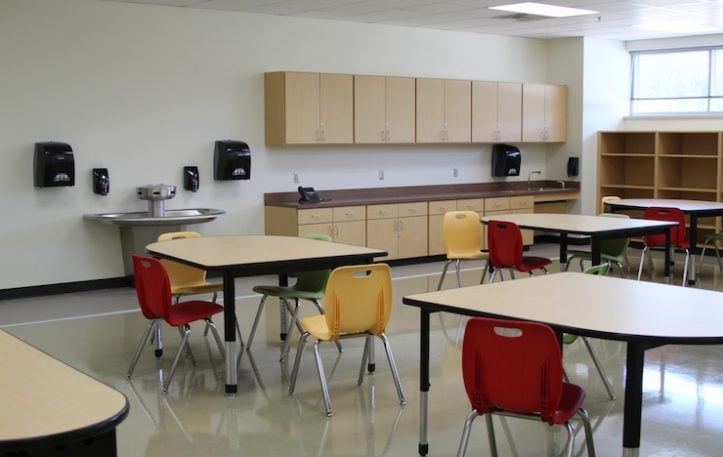AISD elementary schools to receive two STEM labs

All Arlington ISD elementary schools will receive two new STEM – science, technology, engineering and math – labs as part of the 2014 Bond package. The labs are part of a larger scope of work scheduled for each elementary, including a new strings room (read more about the strings rooms in next month’s bond newsletter) and facility upgrades and replacements. Architects are currently developing the plans for the labs, and construction will begin at the first elementaries in the spring of 2016.
The labs represent the strong commitment the AISD has made to improving education in science and math and sparking student interest in these disciplines. As job opportunities in the sciences are increasing, the AISD wants to equip its students to take full advantage of those opportunities. STEM careers comprise 20 percent of all U.S. jobs and the numbers are growing; and often these jobs pay higher than those in other areas. (STEM Education Coalition). Technology has become ubiquitous in all sectors, creating a need for STEM skills “across a wide variety of blue-collar, craft, and professional occupations (Rothwell 2014).”
However, many kids across the country display little interest in these subjects and fail to recognize the disciplines’ relevance in the real world (Kadlec & Friedman 2007). And according to many of the students who are interested in STEM – STEM college students – their K-12 education failed to adequately prepare them for their STEM college courses (Microsoft survey). But with better teaching methods and purposely-designed classrooms and labs, schools and teachers can inspire students to learn, discover and enjoy science and math. Preparing students – and inspiring them – for careers in these subjects needs to start early.
Danielle Reynolds, AISD PK-12 science/health coordinator, is a strong proponent of a rigorous STEM education at the elementary level. She was tasked to put together a committee in October 2014 to develop the standards used for designing the AISD’s elementary STEM labs. The committee included campus teachers and administrators, along with district staff from curriculum and instruction, instructional technology, facility services, professional learning and finance. The committee members set out to answer several questions: What should the labs look like; how should they be used; and how should the labs be staffed? The members studied best practices, surveyed teachers, consulted the AISD 2014 districtwide facilities assessment and considered the Texas Administrative Code requirements. Their recommendations were presented to the AISD Board of Trustees in April and immediately applied to the design of the STEM labs in the brand new Patrick Elementary.
Standards for new elementary STEM labs
It’s one thing to apply the new STEM lab standards to the design of a brand new school like Patrick, but it is a different, more difficult thing to apply them to existing elementary buildings. Reynolds shared the committee’s recommendations with Craig Wills, AISD facilities project manager, and he helped draft a version they could apply to the lab designs at existing schools. “Every school is a little different as far as what space is available,” Wills explained. So the AISD facilities staff and contracted architects are adapting the standards to each elementary based on the school’s existing footprint.
Each school’s renovations will look a little different. Some schools already have existing rooms that can be repurposed into STEM labs, while others may require more extensive renovations or even additions. AISD project managers and the architects spent time visiting each elementary, joined by the school’s principal. “We always get principal buy-in,” Wills said. They have many good suggestions.
While each elementary’s new labs will look a little different, the architects are seeking to incorporate the following standards developed by the STEM lab committee into each one:
• Side by side – Ideally the two labs will be next door to each other and connected by large doors that can easily open. Open doors will allow for collaboration between the two rooms.
• High visibility – Ideally the labs will be located in high traffic areas of the school and include windows into the hallways. The windows will allow students and parents passing by to see in and view the exciting projects underway. The high visibility can attract students’ attention and pique their interest in the sciences.
• Open and adaptable – The labs need an open concept, easily adaptable for any number of experiments and activities. The furniture should support this and be versatile and easily moved. There is no need for a large permanent teacher desk since the labs are shared workspaces.
• Storage – Ample storage is important to house student projects. Reynolds emphasized that the labs are “ongoing.” Students may have “ongoing projects” that need to be stored.
• Square footage – Texas law requires a minimum of 800 square feet (§61.1036. School Facilities Standards for Construction on or after January 1, 2004). The AISD standards call for a minimum of 1,000 and a maximum of 1,200.
• Lots of white board space
• Technology – The labs will receive a projector, speakers, whiteboard, docking station, monitor, keyboard and mouse. Students will also have access to devices.
• Lots of counter space for experiments and projects
• Plenty of outlets
• Student washing station – Ideally the labs will have a semicircular washing station for multiple student use. This sink will not only allow more students to wash their hands at the same time, it also takes the sinks away from the counters, freeing up counter space for other things and keeping water away from materials, experiments or projects on the counters.
• Adequate staffing – Schools will have a paraprofessional serve as the lab manager, which will allow teachers to maximize instructional time. The manager will set up and maintain equipment and assist teachers with lab activities.
Teaching STEM in the new labs
The recommendations from the STEM lab committee not only outlined what the space should look like, but also included proposals on what Reynolds considers even more important – how to use the space.
STEM is a pedagogy, Reynolds insisted, not just a class. It’s not really about the lab equipment or even the space. It’s about a method of teaching that is more inquiry-based and hands-on. The purpose of the labs then is to enhance this method of teaching and to facilitate the four Cs: communication, collaboration, critical thinking and creativity. The labs will provide “opportunities to build these four skills … and increase the rigor,” Reynolds said. Content is not taught in isolation, but incorporates multiple subjects, adding real-world relevancy and enabling students to “construct their own knowledge.” A STEM class is not nice and neat, Reynolds explained. It “should look like controlled chaos … emphasis on controlled.” As students develop the four Cs – applicable for all of life, not just science – they will become better prepared for the world around them. “Kids that can do those things can do any job.”
But simply adding STEM labs at each elementary is not enough to foster this type of teaching and learning. The teachers need to be trained how to use the labs effectively and how to implement the pedagogy that Reynolds described. “We want to make sure the teachers know how to use the space,” she said.
So the AISD is providing professional development for elementary math and science teachers, along with the high school teachers at AISD’s new STEM Academy (housed at Martin High School). The STEM Academy teachers and elementary teachers from Patrick and Adams are going first. Conducted by Discovery Education, the teachers receive three days of professional development, spread out during the semester, along with two coaching sessions. The coaching sessions in October and November include classroom observation, so the teachers can receive practical advice and instruction that pertains specifically to them. Math and science teachers from the other elementaries will also receive the training as their schools receive the new labs. The professional development schedule will follow the district’s construction schedule.
The goal of the new STEM labs – along with the method of teaching – is to “meet the needs of the learners,” Reynolds explained. “And this isn’t a phase.” Look at the world, she said. This is the way the world is going. The importance of STEM and the number of related jobs are growing and will continue to do so. It is vital that the AISD trains its students for the real world and gives them every opportunity to succeed. A robust, rigorous STEM education – taught in labs that enhance the learning experience – is designed to do exactly that.
